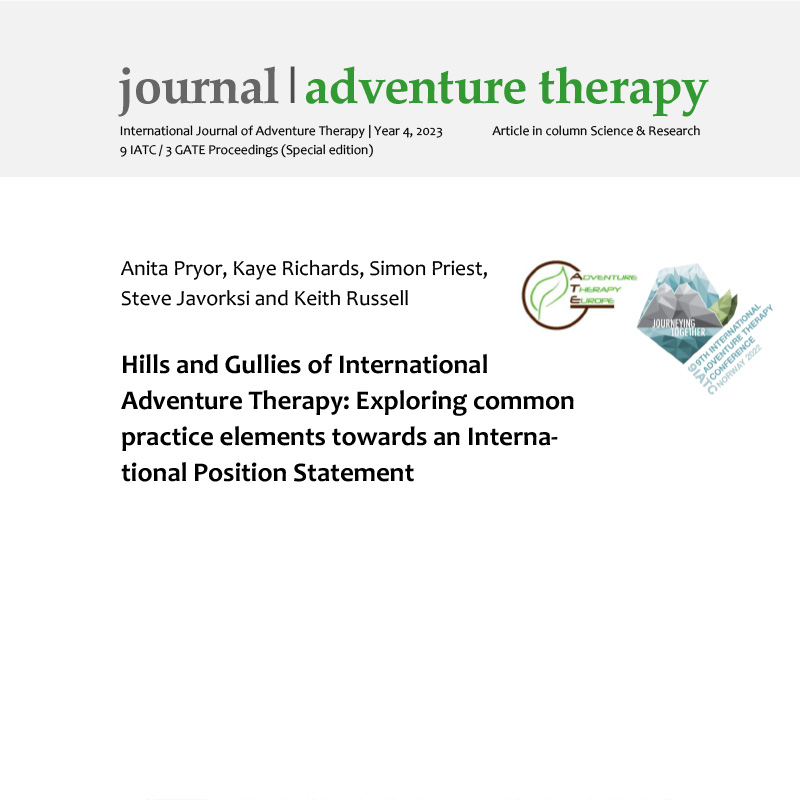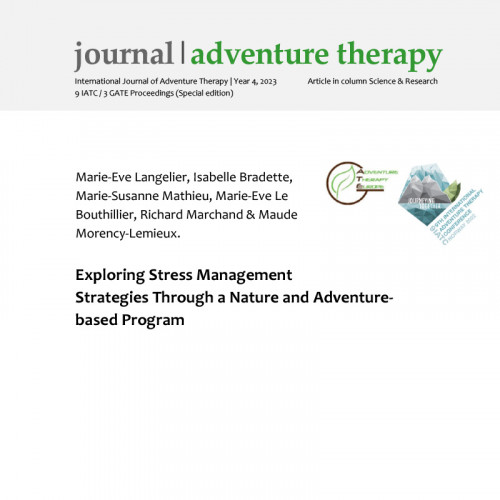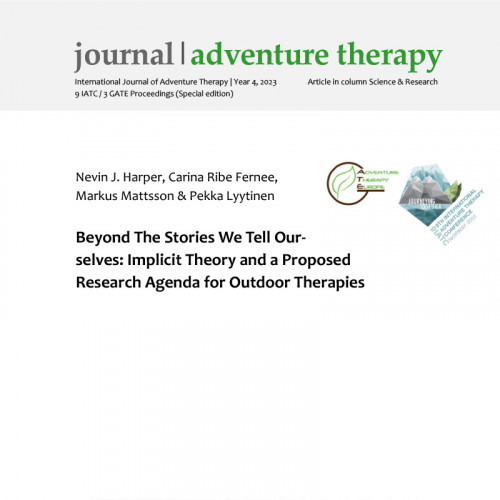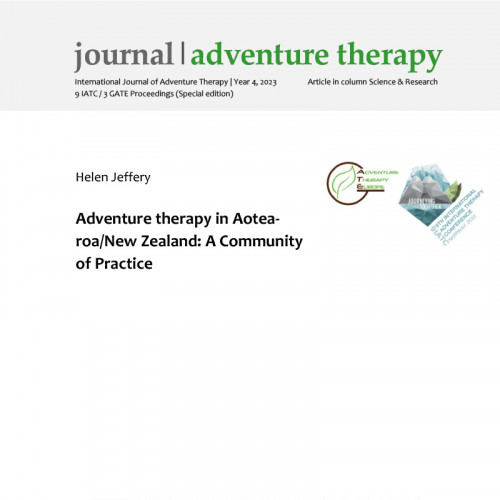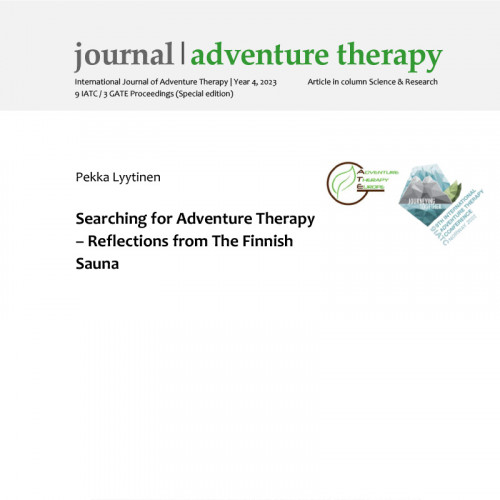Authors: Anita Pryor, Kaye Richards, Simon Priest, Steve Javorksi and Keith Russell
Of all the features of a given landscape, perhaps it is those that everyone can see – the ‘rising hill country’ – that enable discussions from wide-ranging perspectives. Five researcher-practitioners explored the landscape of International Adventure Therapy to identify common features and address the question: ‘Can we co-develop a shared position statement on international adventure therapy that will hold up across diverse cultural contexts?’. Given that adventure therapy has been used as an umbrella term to reflect a range of intentional therapeutic experiences facilitated outdoors (e.g., wilderness therapy, bush adventure therapy, friluftsliv, outdoor therapy, outdoor adventure interventions, nature therapy, etc.) this paper encompasses diverse perspectives. An exploration of common ground led the authors to identify five sets of common practice elements (‘hilltops’) that that the authors felt may be relevant across diverse international adventure therapy contexts: 1. Biological, 2. Psychological, 3. Social 4. Ecological, and 5. Ethical. Between each author’s ‘homeland’ and the shared ‘hilltops’, many gullies, rivers, and chasms were identified – features which both halted, and enriched, the group’s shared aspiration of co-developing an inclusive position statement. With persistence, a preliminary set of definitions, mechanisms of change, and intended outcomes were co-developed for each of the five sets of common practice elements. Rather than arriving at a definitive ‘position statement’, the collaboration led to a set of preliminary ‘positioning statements’, in need of further critical reflection and wider discussion within the International Adventure Therapy community. This paper invites readers to consider if an international adventure therapy position statement is desirable or not, and possible or not, and worth the effort or not. If seen as worthwhile, readers are invited to suggest how this aspiration may be progressed in inclusive and collaborative ways.
